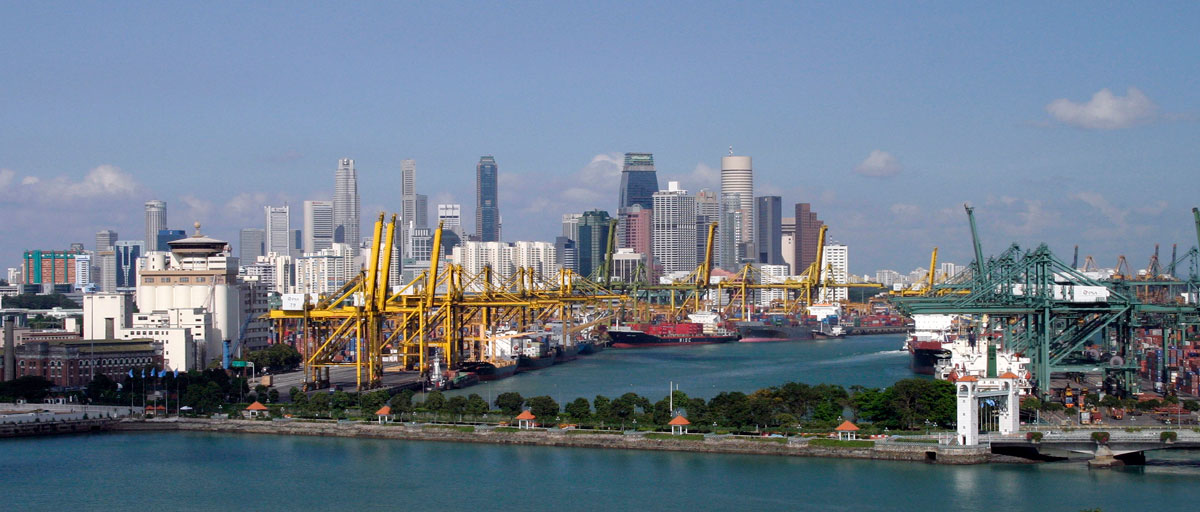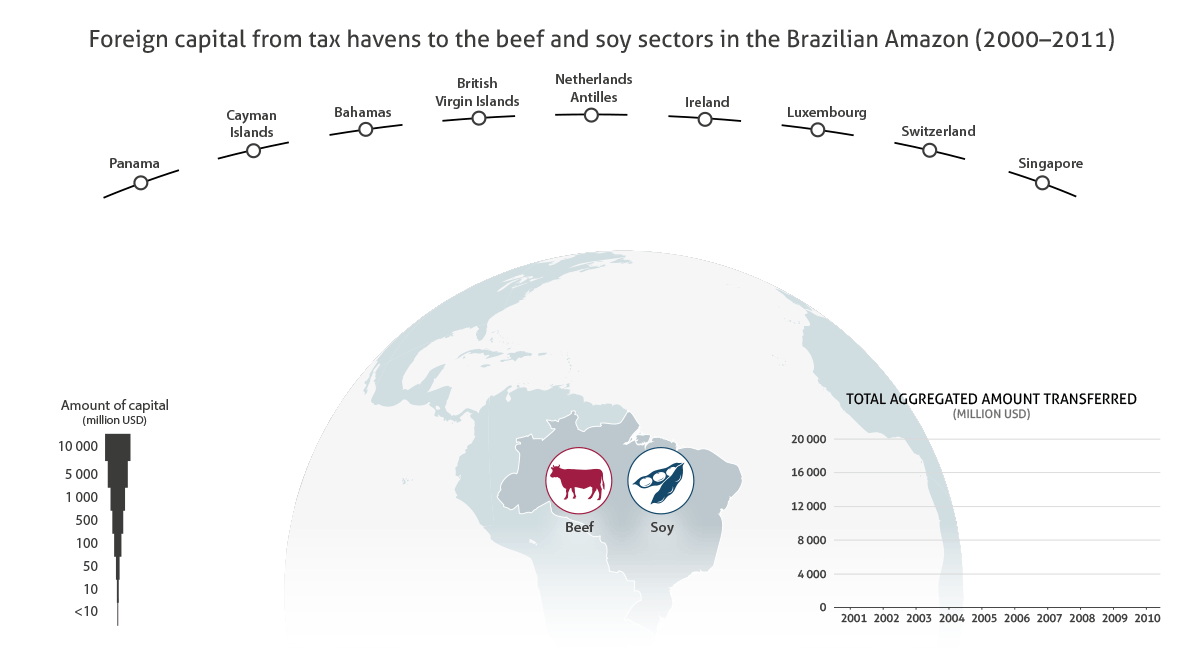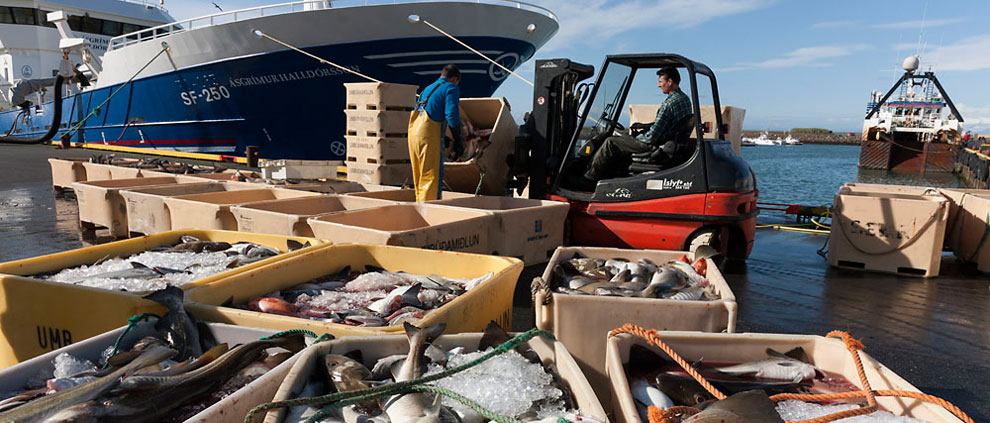
Tax havens like Singapore (photo), Panama and Cayman Islands provide financial secrecy for industries that are associated with environmentally destructive activities on global scales, reveals a study published in Nature Ecology & Evolution. Photo: A. Maslennikov, Azote
Bildtext får vara max två rader text. Hela texten ska högerjusteras om den bara ska innehålla fotobyline! Photo: B. Christensen/Azote
Sustainable finance
The hidden environmental consequences of tax havens
New analysis reveals connections between tax havens and resource degradation in both the Amazon rainforest and global fisheries
- New study of the hidden links between global environmental commons and tax havens published in Nature Ecology and Evolution
- 70% of the known vessels involved in illegal, unreported and unregulated (IUU) fishing are, or have been, flagged in a tax haven
- 68% of all investigated foreign capital to companies in sectors associated with deforestation of the Amazon rainforest was transferred through tax havens
(Svensk sammanfattning av artikeln finns längst ner på sidan).
The release of the “Paradise Papers” and “Panama Papers” made it painstakingly clear that tax havens can cause a number of negative political, economic and social impacts. Now a team of researchers from the centre and GEDB (Global Economic Dynamics and the Biosphere, Royal Swedish Academy of Sciences) have published the first study showing how tax havens underpin economic activities that potentially cause serious global environmental impacts.
Their study, published in Nature Ecology and Evolution, reveals that 70% of the known vessels involved in illegal, unreported and unregulated (IUU) fishing are, or have been, flagged under a tax haven jurisdiction. The study also finds that on average 68% of all investigated foreign capital to sectors associated with deforestation of the Amazon rainforest between the years 2000-2011, was transferred through tax havens.
"Our analysis shows that the use of tax havens is not only a socio-political and economic challenge, but also an environmental one. However, financial secrecy hampers the ability to analyse how financial flows affect economic activities on the ground, and their environmental impacts," says Victor Galaz, lead author of the new study.
The team of authors also includes SRC/GEDB colleagues Beatrice Crona, Alice Dauriach, Jean-Baptiste Jouffray and Henrik Österblom, as well as Jan Fichtner from the University of Amsterdam.
The new study is part of an on-going research project called “Earth System Finance: New perspectives on financial markets and sustainability”. It is led by GEDB and the centre, in partnership with Future Earth.
The use of tax havens is not only a socio-political and economic challenge, but also an environmental one. However, financial secrecy hampers the ability to analyse how financial flows affect economic activities on the ground, and their environmental impacts
Victor Galaz, lead author
Taxing the global commons
Most previous analyses of the environmental impacts of tax havens have been done by investigative journalists focusing on a few locations. Examples include the links between rainforest destruction in Indonesia and palm oil companies operating through British Virgin Islands, and shell companies involved in destructive diamond mining in West Africa.
The new study, on the other hand, takes a more systematic approach to analyse how tax havens influence the sustainability of the ocean and the Amazon rainforest as two key examples of global environmental commons.
"The absence of a more systemic view is not surprising considering the chronic lack of data resulting from the financial opaqueness created by the use of these jurisdictions," says co-author Beatrice Crona, GEDB executive director.
This lack of transparency hides how tax havens can play a key role in facilitating the degradation of environmental commons that are crucial for both people and planet at global scales. The Amazon rainforest, for example, is critical for stabilizing the Earth’s climate system while the ocean provides a vital source of protein and income for many millions of people worldwide, particularly in low-income food-deficit countries.
From Cayman Islands to the Amazon
The paper includes the first quantification of foreign capital that flows into the beef and soy producing sectors operating in the Brazilian Amazon – two sectors linked to deforestation.
"Our analysis shows that a total of USD 26.9 billion of foreign capital was transferred to these sectors between October 2000 and August 2011. Of this capital, about USD 18.4 billion was transferred from tax haven jurisdictions," they write.
The Cayman Islands turned out to be the largest transfer jurisdiction for foreign capital to the key companies operating in the Brazilian Amazon. The well-known tax haven provides three benefits to investors: legal efficiency, tax-minimization and secrecy.

Using data from the Central Bank of Brazil Victor Galaz and colleagues show that around 70% of foreign capital flowing to the largest companies in the Brazilian soy and beef industries is channelled through tax havens. Illustration: J. Lokrantz, Azote
Fishy havens
The new study also includes a systematic analysis of tax havens’ role in Illegal, Unregulated and Unreported (IUU) fishing activities around the world. It revealed that 70% of the vessels found to carry out, or support, IUU fishing and for which flag information is available, are, or have been, flagged under a tax haven jurisdiction, in particular Belize and Panama.
Many of these tax havens are also so called flags of convenience (FOC) states, countries with limited monitoring and enforcement capacity that do not penalise vessels sailing under their flag even if they are identified as operating in violation to international law.
The most striking example of how this undermines international fisheries law and governance is that the secrecy afforded by combined tax haven and FOCs allow companies to sail fishing vessels with dual identity – one of which is used for legal and the other for illegal fishing activities.
“The global nature of fisheries value chains, complex ownership structures and limited governance capacities of many coastal nations, make the sector susceptible to the use of tax havens,” says co-author Henrik Österblom.
Indirect subsidies
In conclusion, the new study, shows it is high time to put tax havens on the global sustainability agenda.
“The lack of clearly established causal links between tax havens, and global environmental change should not deter from further investigations,” as the authors put it.
They suggest three issues which they believe should be central in future research efforts and governance of tax havens:
(1) The loss of tax revenue caused by tax havens should be considered as indirect subsidies to economic activities, sometimes with negative impacts on global commons;
(2) Leading international fora and organizations, like UN Environment, should assess the environmental costs of these subsidies;
(3) The international community should view tax evasion as not only a socio-political problem, but also as an environmental one.
Methodology
The researchers based their analysis of the links between tax havens and deforestation in the Amazon rainforest on data from the Central Bank of Brazil. The data set includes "register of foreign capital" for the period between October 2000 and August 2011. This allowed the researchers to make the first quantification ever of flows of foreign capital from financial actors based outside of Brazil to the beef and soy sector operating in the Brazilian Amazon.
The analysis of tax havens’ role in unsustainable and illegal fishing activities was made by combining multiple datasets on fishing vessels and flag information, e.g. FAO Fishing Vessel Finder, data from Regional Fisheries Management Organizations and Interpol.
The definition of “tax havens” has been contested and revised at multiple occasions. This study used the term and definition of “tax havens” and the list presented by Gravelle, 2015.
The datasets generated during and/or analysed during the current study are openly available in the figshare repository. The dataset includes not only data used for the analysis of this study, but also additional data originally published by the Central Bank of Brazil.
The investigated companies operating in the Brazilian Amazon have been contacted before publication and invited to respond. The contact letter and all received responses are included in the new study’s Supplementary Information.
Svensk sammanfattning
Ny studie om skatteparadisens dolda globala klimat- och miljöeffekter
En ny studie som publiceras i Nature Ecology and Evolution 13 augusti har tittat på hur användningen av skatteparadis är kopplad till illegalt fiske i världshaven, och skogsskövling i Amazonas regnskog (som är viktig för hela planetens klimatstabilitet). När det gäller Amazonas har forskarna studerat tidigare okända data som kopplar kapitalflöden från skatteparadisen till kött- och sojasektorn i Brasilien.
Forskarna bakom studien kommer från Stockholm Resilience Centre (Stockholms universitet) och forskningsprogrammet GEDB på Kungl. Vetenskapsakademin, samt University of Amsterdam.
Studiens viktigaste slutsatser:
- I genomsnitt kom 68% av allt utländskt kapital till kött- och sojaindustrin i Brasilien från skatteparadis (sojaodling och boskapsuppfödning är två av de främsta orsakerna bakom avskogningen)
- 70% av alla fiskefartyg i världen som är inblandade i olagligt, orapporterat och oreglerat fiske (IUU) är eller har varit flaggade i ett skatteparadis
- Det är hög tid att ta skatteparadisen klimat- och miljökostnader på allvar i forskningen och det globala arbetet för hållbar utveckling
Galaz, V., Crona, B., Dauriach, A., Jouffray, J-B., Österblom, H., and Fichtner, J. 2018. Tax havens and global environmental degradation. Nature Ecology and Evolution (Perspective). https://doi.org/10.1038/s41559-018-0497-3
Victor Galaz's research deals with the governance challenges associated with planetary boundaries and the Earth system, including complex social-ecological systems and globally networked risks.
Beatrice Crona’s work centers on various aspects of oceans and fisheries governance, as well as understanding different emerging global connectivities and their effects on social-ecological outcomes at multiple scales.
Henrik Österblom's research focuses on globalization and marine social-ecological systems, in particular how fisheries and marine ecosystems are managed.
Jean-Baptise Jouffray looks at cross-scales driver interactions in marine social-ecological systems.










